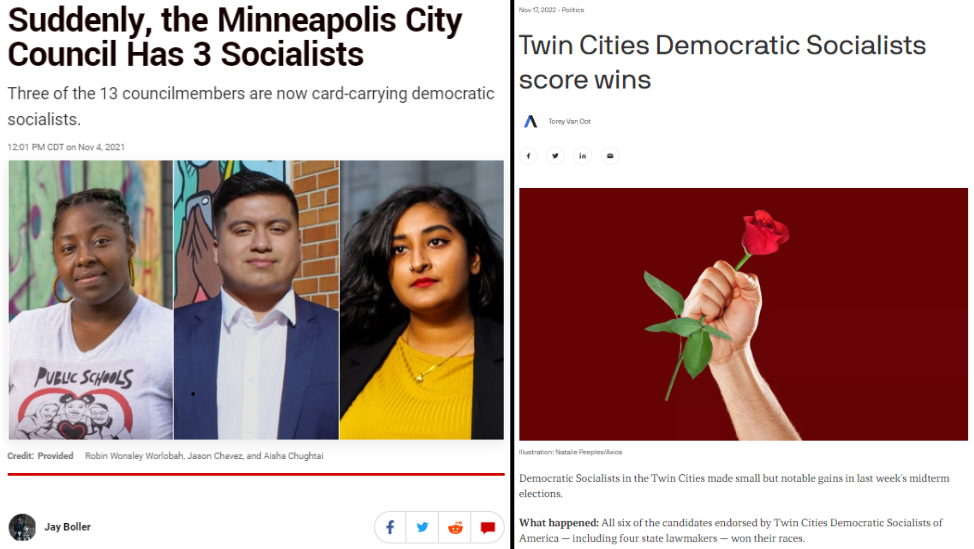On December 10th, Twin Cities DSA members met to discuss what is the role of electoral campaigns going forward. In light of the potential approval of the policy platform and chapter priorities proposals, we discussed how this work could advance TCDSA’s political vision, what the chapter is seeking from the endorsement process, how to build out engagement structures with endorsed elected officials, and how to address the challenges of capacity and inclusivity that have limited expansion of the committee’s work. These are topics that have not had a chapter-wide discussion in two years. With many new members, and following the recent election and annual convention, it’s time to revisit these topics. The following is a synthesis of the conversation which followed.
The last chapter discussion led to a vote on the endorsement process. In February of 2021, after months of development by the working group formed by Political Action Coordinator Isuru Herath the previous fall, a formal endorsement process was presented to membership for their approval. This passed, with 185 votes in favor and two opposed. Since then, the electoral committee has facilitated multiple endorsement processes, held numerous door-knocking events and engaged dozens of volunteers in the process, and built out the legal and structural infrastructure of the chapter to better engage in this arena. Of the 11 races we have made endorsements in over that time, our candidates have won in nine of them.
Electoral is one of the most difficult terrains for socialists to operate on. The influence of the ruling class is pervasive in all of the halls of power. It has only been mass movements that have been able to push forward working class demands, such as the Fight for $15. Electing socialists within majorities is the start, but now we also must coordinate with electeds to achieve strategic goals. Holding electeds accountable and working with our members in office requires us to bridge them with a mass movement that demands more from the government.
This will also require the establishment of clear priorities for the chapter, which will lead to criteria that can be considered when planning our campaigns, and by allowing these to inform the endorsement process, we create opportunities for action. We now have opportunities to support electeds and their allies in governing bodies. As we build capacity to expand outside of Minneapolis and St. Paul, this opens up the potential for winning low turnout races in the suburbs. Through this support, we are able to fight for material changes and concessions that empower the working class and redistribute wealth and power away from the ruling to the working class, on a program that builds a socialist-centered momentum.
We currently have ten endorsed office holders, and need formal means for relating to them. We see this issue in DSA nationally, with a focus on how to engage meaningfully and proactively with candidates, rather than reacting after a mistake is made. We see little consensus on how to address the problem when there is a serious misalignment with DSA principles (Fortunately we have not had that occur with any of our candidates – yet). This is reflected on a local level, with Twin Cities DSA requiring a formal process to communicate with electeds. We need a system to discuss what is going on inside governing bodies, and how that can inform our work as a chapter. Achieving this means considering our current capacity. Over the last two years, a significant burden has been placed on a small group of people in order to carry out this work, which has limited the capacity to connect the work with other chapter efforts and build up the structure of the committee.
Some ways we might draw in new volunteers could include becoming more vocal about our electoral victories, highlighting what our candidates have achieved while in office, and broadcasting the priorities we establish for our political program. The benefit of electoral work is it can be an easy intake point for the newly political and for less engaged members. This links up with the ongoing work to develop our internal structures to onboard new members, while providing members clear resources to organize with and involve themselves with the chapter, as well as develop Twin Cities DSA’s outward presence to draw new people in. It provides new members an opportunity to canvass on issues they care about. Electoral volunteers who show commitment during the campaign are provided opportunities to take on new responsibility and become connected to the larger movement we are building.
– By Tim H.

